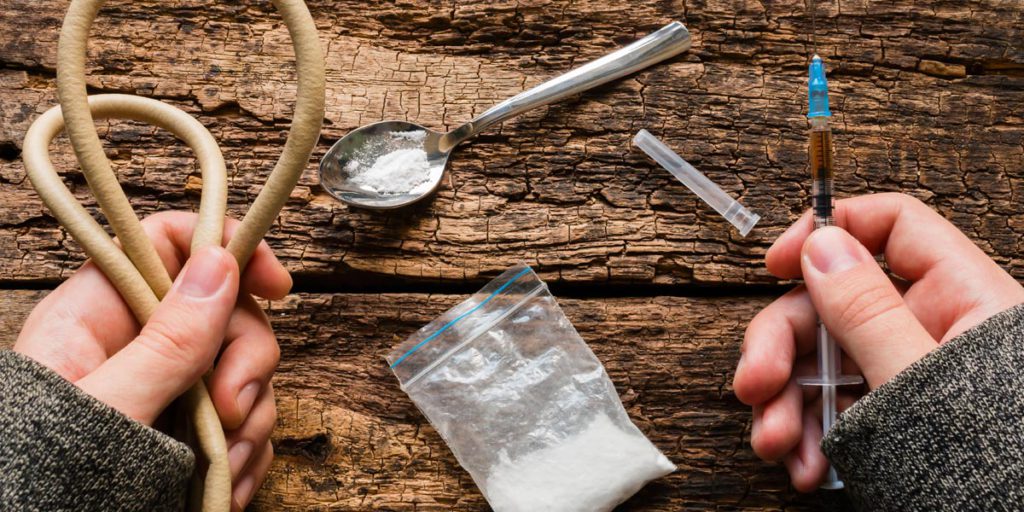Is Addiction a Disease or a Choice?

In 1987, the American Medical Association (AMA) officially declared addiction a disease. However, it is still not accepted by everyone. Some people still view addiction as an issue of ethics— a lack of willpower and morality rather than a disorder.
Definition of Addiction
Drug and alcohol addiction is the ongoing use of mood-altering substances despite harmful consequences and long-lasting changes in the brain. Addiction is defined and displayed by three or more of the following happening at any time in 12 months:
- A need for noticeably increased amounts of the substance to reach intoxication or the desired effects
- An obviously reduced effect with prolonged use of the same amount of the substance
- The distinctive withdrawal syndrome for the substance
- The same substance taken to ease or avoid withdrawal symptoms
- The substance taken in more significant amounts or over a longer period of time than meant to
- A continuous desire or failed efforts to manage or cut down on substance use
- A lot of time spent on activities needed to get the substance, use it, or recover from the effects
- A decline in or absence from important social, occupational, or recreational activities due to substance use
- Repeated substance use regardless of knowing about a lingering physical or mental problem caused by the substance
What Causes Addiction?
Genetics and childhood development influence the likelihood of addiction. And although an individual may be more vulnerable to addiction because of a traumatic experience in early life, such as abuse, or an alcoholic parent, it is not enough to cause the disease.
Typically, the cause of addiction is social influences, like peers, society or family pressure, and mental issues, such as a history of abuse or other trauma and dual diagnosis. Dual diagnosis is addiction, also known as a substance use disorder, and the co-existence of another type of disorder, such as anxiety or post-traumatic stress disorder (PTSD).

Is Addiction a Choice?
Some people view addiction as a choice rather than a disease. For example, Gene Heyman, author of Addiction: A disorder of choice, believes addiction is more effectively addressed when viewed as a choice. His model suggests it helps manage self-control and emphasizes the importance of participating in positive behaviors.
Especially relevant is Heyman’s note of two Federal research institutes dedicated entirely to addiction, the National Institute on Drug Abuse (NIDA) and the National Institute on Alcoholism and Alcohol Abuse (NIAAA). He points out that since the adoption of the idea that addiction is a disease and large sums of money and time put into its research, drug addiction has not declined.
However, if addiction is a choice that holds all the medical research for addiction as unnecessary, therefore supporting a criminal response to addiction.
The first decision to drink alcohol or take drugs is typically a choice. So that must mean when someone chooses to use a substance, it means they decided to have an addiction, right? But, no, it’s not that simple. With continued alcohol or drug use, an individual’s self-control becomes severely impaired. Once you become addicted, you are under the direct control of the disease. It creates a revised state of mind.
The Addicted Brain
Reward is a term used in neuroscience, the science of the brain, to describe experiences that the brain encourages repeating, such as happiness, pleasure, or relief from some sort of discomfort. Unfortunately, the brain’s reward system is the exact brain pathway that gets hijacked by addiction, creating a weakness for self-destructive behaviors.
Alcoholism and drug addiction are registered the same by the brain. When you become addicted, your brain’s reward pathway responsible for necessary behaviors, such as eating and sleeping, is taken over—your brain shifts priorities, surrounding its entire motivation to feel pleasure.
Eventually, your brain’s reward pathway evolves to depend on the substance for pleasure, replacing all natural rewards, such as sex and eating. While on the search for that pleasure, the brain receptors that usually manage rewards become numb. This creates the need for more of the addictive substance, building tolerance and inviting future withdrawal.

Why Is Addiction a Disease?
The more an individual uses, the more they need, creating the trademark cycle of all addictions. People with addictions are trapped in this cycle of getting the substance and the consistent feeling of reward upon consumption—attention to anything else that would bring happiness and the motivation to put energy into other activities declines or disappears.
Another factor that powers the cycle of addiction is denial. Denial is remarkably intertwined with addiction. It feeds off addiction’s ability to steal free choice and self-restraint. And it is supported by the intense feeling of reward from the addiction and the lack of motivation. The addicted brain becomes like a lock, and the addicting substance is the only key.
Signs of Drug Addiction
The signs and symptoms of addiction include:
- Significant weight loss or gain
- Long sleeves and tinted glasses in inappropriate settings
- Severe mood swings or change in personality
- Dilated or pinpoint pupils
- Withdrawal from family, friends, coworkers
- Relationship issues: friends, family, marital, professional
- Refusing social invitations
- Poorly explained injuries and accidents

Treating the Disease of Addiction
Addiction is a disorder, a brain disease, a behavioral health problem. Addiction is complicated, but it is not a choice. And if properly treated, it can stay in remission.
Research has proven that residential treatment programs that address co-occurring disorders and combine medications, known as medication-assisted treatment (MAT), if needed, are the best way to ensure success for most struggling with substance use disorder.
Get Help for You or a Loved One
The recovery journey is a commitment to oneself and an opportunity to heal. Developing a foundation of well-being to keep lasting sobriety is our aim at Northridge Addiction Treatment Center.
Addictions of all kinds are treatable and nothing to be ashamed of. NATC proudly offers a luxury residential treatment program with both a dual diagnosis and MAT program. Don’t hesitate to reach out to find out how NATC can tailor a path to your recovery. We’re here for you.
Find Meaningful Recovery
Our caring and compassionate specialists are eager to help you comfortably navigate this journey to recovery. Our individualized treatment plan, programs, and therapies may be a perfect match for you or your loved one. Let us assist you in living the happy life you deserve. It starts with a phone call.




